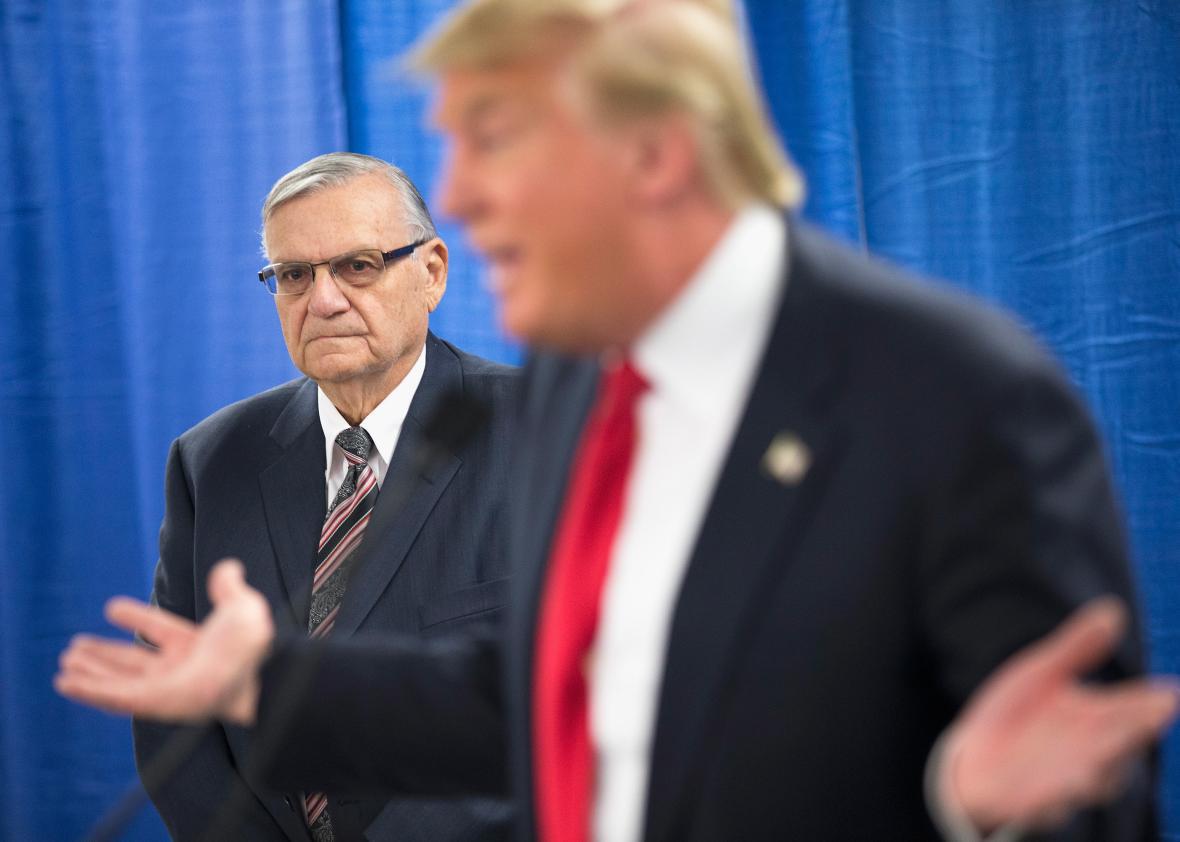People close to President Donald Trump were not surprised in the slightest when he decided to go ahead with the pardon of former sheriff Joe Arpaio. The commander in chief had made it clear for months that he wanted his staunch ally to skirt the justice system and had even asked Attorney General Jeff Sessions about closing the criminal case against Arpaio, reports the Washington Post. The president was advised what should have been obvious: meddling in an ongoing criminal case would be inappropriate. So the commander in chief decided to let the trial move forward, knowing full well that he would be granting Arpaio clemency if he was convicted.
How clear was the commander in chief that he wanted to pardon Arpaio? He was “gung-ho about it,” according to a Post source. “We knew the president wanted to do this for some time now and had worked to prepare for whenever the moment may come,” a White House official said.
Trump’s pardon of the racist ex-sheriff was already controversial, in part because he moved forward with the clemency without even consulting the Justice Department. But now word that he wanted the Executive to prevent the case against Arpaio from moving forward in the first place, exposes “a troubling disregard for the traditional wall between the White House and the Justice Department,” notes the Post.
This is hardly the first time Trump tried to use the presidency to help his friends out of a sticky legal situation:
Trump’s spring inquiry about intervening in Arpaio’s case is consistent with his alleged attempts to influence the federal investigation of Michael Flynn, the former national security adviser. Trump also made separate appeals in March to Director of National Intelligence Daniel Coats and National Security Agency Director Michael S. Rogers to publicly deny the existence of any evidence of collusion between the Russians and the Trump campaign during the 2016 election.
The White House did not deny that Trump talked to Sessions about ending the case against Arpaio. “It’s only natural the president would have a discussion with administration lawyers about legal matters. This case would be no different,” White House press secretary Sarah Huckabee Sanders said.
Trump took to Twitter to share news of his first presidential pardon on Friday, seemingly explaining his decision with four words: “He kept Arizona safe!”
